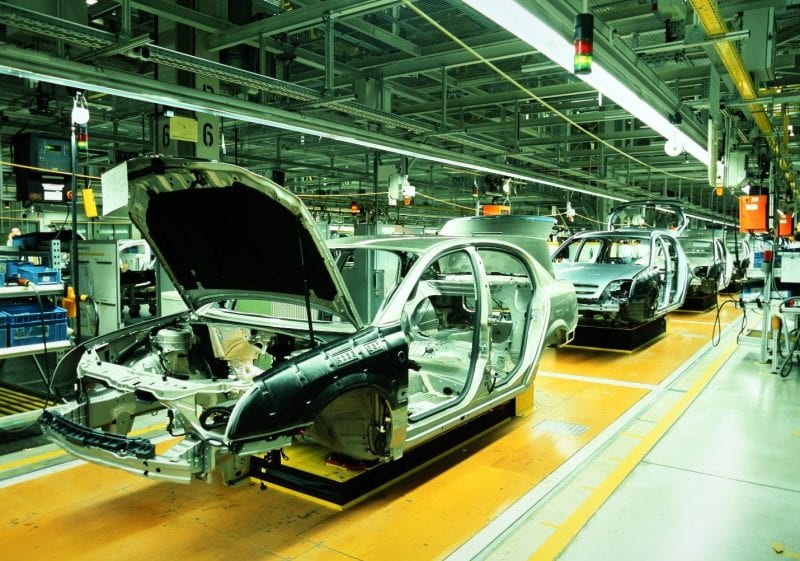
Consulting Playbook: Establishing New Organization to Meet Globalization’s New Challenges
The Consulting Playbook, Edition #20
A major Automotive company aspired to become a global organization. Their ambitious goal required several trade-offs to expand internationally. The company needed to develop a new Program function covering strategic resources allocation and building a connection with all the other existing functions such as product development, engineering, manufacturing, purchasing and marketing/sales. Besides, a new organization had to be set up with business units – zones in the international markets. This was a drastic change for the company and they decided to get some external support.
The Consultant’s Approach Centered on Facilitation
A team of three main Executives developed the business principles of the new organization, progressively building the new organizational structure, operating model and appointing the new management.
The set-up of the newly defined program function was quite challenging as former program entity was mostly in charge of synchronizing milestones without clear levers. The new scheme, inspired from the aerospace industry was giving the accountability to the programs on product plan, development budgets, resources allocation, major trade-off decisions and off-course planning. Resources were distributed across programs and functions depending on their level of dedication to the programs.
The creation of the regional business units in charge of marketing, sales and services in their region was also a massive shift considering that all those activities were previously organized by function. The newly created structures would have P&L accountability for their region but also the necessary levers to deliver. The overall consistency on the brand, policies and practices would be ensured through the implementation of small but powerful corporate functions. Regions would express regional customization needs to the programs to make sure products would answer the regional specificities.
The consultant facilitated the migration of budgets, headcounts, transfer of accountabilities with a specific focus on the continuation of major projects.
At the project’s completion, few major achievements were made:
- The launch and start of the new organization was successfully completed.
- Cost reduction (opex and capex) of 15% realized, by improving allocation of strategic resources carefully managing tradeoffs but also streamlining the organizational structure
- Acceleration in development of customized regional products that addressed local markets needs
Additional Information
4 Major Trends in the Automotive Industry That Will Impact the Future
Despite that the Automotive Industry has enjoyed a solid rise in demand, there are few potential risks that can hinder the growth, and will have a cooling effect.
Among these risks factors are slowing global economy, fluctuations in interest rates, and changes in future demand.
Exciting new technologies are impacting the Automotive industry today, from electric cars, to self-driving vehicles, and a multiple mobile apps changing how drivers and passengers interact. But beside the exciting things, some serious concerns have emerged too.
- Production
After the recession and the subsequent growth in demand, manufacturers have expanded facilities to cope with higher demand, they invested in new facilities and ramped up production capacity. But all this can become problematic when the demand starts declining. And scheduling issues might become a serious problem for suppliers who are doing their best to optimize work schedules, delivery, and use flexible sourcing options, and selection of manufactures.
- Consumer Demand Trends
Right now, older baby boomers represent the biggest segment of car sales, and this pattern likely won’t change. Millennials on the other hand, are less interested in car ownership and prefer other transportation options. The popular ride-sharing apps are changing consumers’ behavior. Auto suppliers are starting to worry how they are going to grow sales when the demand starts declining soon.
- Global Expansion
Approximately a third of North American automotive parts are manufactured in Mexico, and many US suppliers have facilities there or a planning to establish ones. However with the new administration in Washington commencing early next year, we can’t be sure about the future developments at the present moment.
- Workforce Shortage
With the creation of many new jobs, and the ever-increasing sophistication in machinery, suppliers face difficulty in staffing. There is simply not enough skilled labor in the industry. Attracting and retaining skilled labor means offering enough incentive, effective salary and benefits packages to secure workforce commitment. Many manufacturers are also working on training and internship programs, in partnership with colleges, to facilitate new talent education and career choices.
For Further Reading –
About The Consulting Playbook
The Consulting Playbook is a collection of posts designed to offer insights into how businesses and their executives can utilize consulting as a strategic lever to boost performance. Each Consulting Playbook post is broken down into a few elements: Case Study, Additional Information regarding the technical application, and Additional Links related to the topic.
Hélène Laffitte is the CEO of Consulting Quest, a Global Performance-Driven Consulting Platform and author of “Smart Consulting Sourcing”, a step by step guide to getting the best ROI from your consulting. With a blend of experience in Procurement and Consulting, Hélène is passionate about helping Companies create more value through Consulting.



